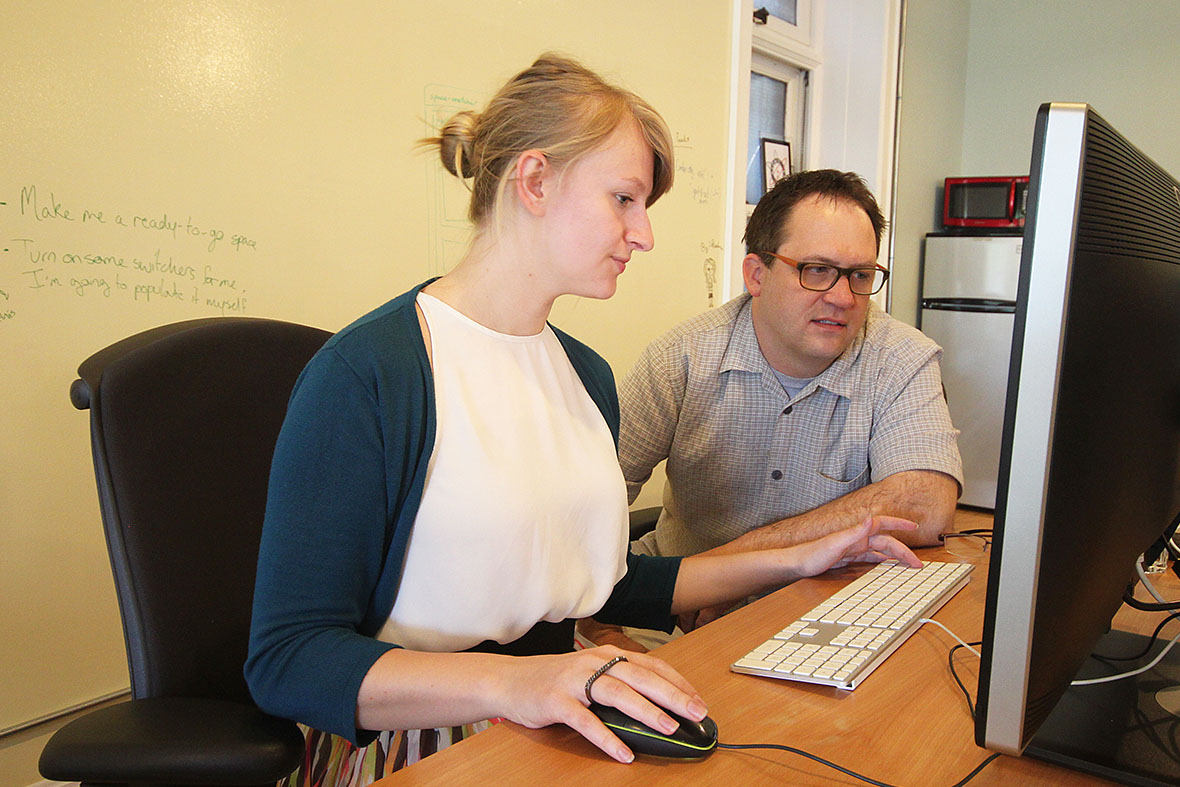As a student about to graduate from a large, highly competitive Computer Science program, I felt a great deal of pressure from the university and from my peers to follow one of two career paths: Join a start-up and become one of its heroic, high-risk/high-reward founders; or snag one of those coveted, high-paying positions at a Silicon Valley tech behemoth.

Joining a start-up had its appeal. The university provided entrepreneurship classes, mentors, and even access to investors–after all, producing young CEOs makes great PR. Classmates couldn’t stop singing the praises of the tight-knit, fast-paced work environments. The only trouble was, I wasn’t interested in the long hours and constant hustle required to get a start-up off the ground, and I had no ideas that could compete with my classmate’s “Tinder, but for pets” pitch. It didn’t look like I was going to be the next Zuckerberg this year.
So, it seemed like the most logical choice was to pursue a position at one of the big companies. All of the huge West Coast names showed up at the career fair. Students waited in 45-minute lines trying not to make eye contact with reps on the way to the booth of interest, lest we be pulled into the recruitment pitch for some small company that none of us had ever heard of. We went to information sessions and panels on how to stand out among hundreds of thousands of applicants. We talked over coffee and homework about which peers’ feet were in which companies’ doors and how we could leverage those relationships. Landing a spot at Facebook/Apple/Google/Microsoft was a matter of pride, and we all knew who had done it and who was stuck at the booths with no lines.
Eventually, I managed to land a series of internships that seemed like just what I wanted: an exciting West Coast life working on important products with a hefty paycheck. People were always impressed when I told them where I had interned. Unfortunately, at the end of each summer, I felt drained, bored, and disconnected from my work and my team. I was disappointed to come to the conclusion that what had seemed like a very practical, brag-worthy career choice was just not working out for me. So, when my final semester of classes started, I found myself jumping back into the job search.
When I saw Atomic’s job listing under “nearby companies” on LinkedIn while visiting some friends in Grand Rapids, I almost didn’t bother to open it. I had never heard of Atomic Object, and I didn’t think I was supposed to go to a small company–wasn’t I good enough to go somewhere big? Still, Atomic’s website and company culture looked interesting, so I began the application process. The research, interviews, and most importantly, conversations that followed changed my perspective on small companies and ultimately led me to accept a position that I absolutely love.
So, what was it about Atomic that led me to reconsider my feelings about small companies? It took a careful evaluation of my own values vs. those of my peers and what I thought was expected of me.

Internal vs. External Motivation
It’s no secret that Silicon Valley paychecks are substantial, and many new grads dream of rising to a high-power position. When start-ups aren’t motivated exclusively by the dream of making it big, they’re often driven by a mission to change the world or to solve a big problem. All of these motivators are external forces, measured mostly in their impact on things outside oneself.
However, the things that I found most motivating were internal forces. For Atomic, building software is more than just a source of income–it’s a source of pride. Instead of basing our value as a company in the market performance of a single product, we base it on how well we perform the service that we provide to customers.
Another important part of what I find motivating is team dynamic. I wanted to be a valued member of a team who knew my name. Because Atomic is small, a new hire represents a significant investment for the company. By bringing me in and giving me awesome resources like the Accelerator Program, they’re demonstrating the value they place on my skills and dedicating themselves to helping me develop them.
Consultancy vs. Product Company
Many students look to join a company that’s working on a product that they’re excited about. Maybe there is a technology that they’re especially capable in or an area of interest where they want to focus. However, with the constant changes in technology, there is no guarantee that your area of interest or skill will even exist tomorrow, let alone next year. New developers need to build a varied set of skills to stay relevant in a changing market, and working at a consultancy like Atomic forces us to keep on our toes to be ready for the next project.
Before coming to Atomic, I figured that working at a large company with many branches in different technologies would fulfill my desire for variety. I quickly discovered that work can grow stale, too, since most of their products’ biggest problems are already solved. The users have been studied, and the goals have been set. These were parts of the process that I wanted to have a hand in. Building custom software as we do at Atomic means every problem that comes through the door is brand new and waiting to be solved.
Long-Term Stability vs. Flux
When I was looking for jobs, I wanted to find something stable that I could build a life around. It’s obvious, then, why the high risk involved in joining a start-up didn’t appeal to me. But what about the tech giants? I don’t believe that Facebook/Apple/Google/Amazon are going down any time soon, but there’s still an element of instability in joining them: the Silicon Valley Gold Rush. Right now, there are thousands upon thousands of new graduates flowing westward. As a result, the West Coast is flooding with well-paid twenty-somethings, the cost of living is skyrocketing, and the locals are starting movements in hopes of reclaiming their cities from the enormous influx of wealthy transplants.
I’m no economist, but I don’t anticipate this being sustainable. I want to build my life in an established, healthy community, with varied families and local businesses. Someday, I want to raise a family here, and I don’t want my children to grow up with only the children of other tech yuppies for friends. I want to build a career and a life with a company that thinks long term.
The thoughts above are my own personal motivations for making the choice to join a company like Atomic. Plenty of my fellow West Coast interns have chosen to take full-time positions at large companies, and they have found their jobs fulfilling. Other classmates have gone for the thrill of fast-paced start-ups or built their own companies as entrepreneurs. Some chose to start careers similar to my own, some went for something completely different—all of us have the opportunity to craft awesome careers for ourselves.
A Clear Choice
If you’ll be facing this decision soon, don’t worry about how your choice will look to your classmates or what other people expect of you. Instead, work on understanding what values and motivators are important to you—the choice will make itself clear.

